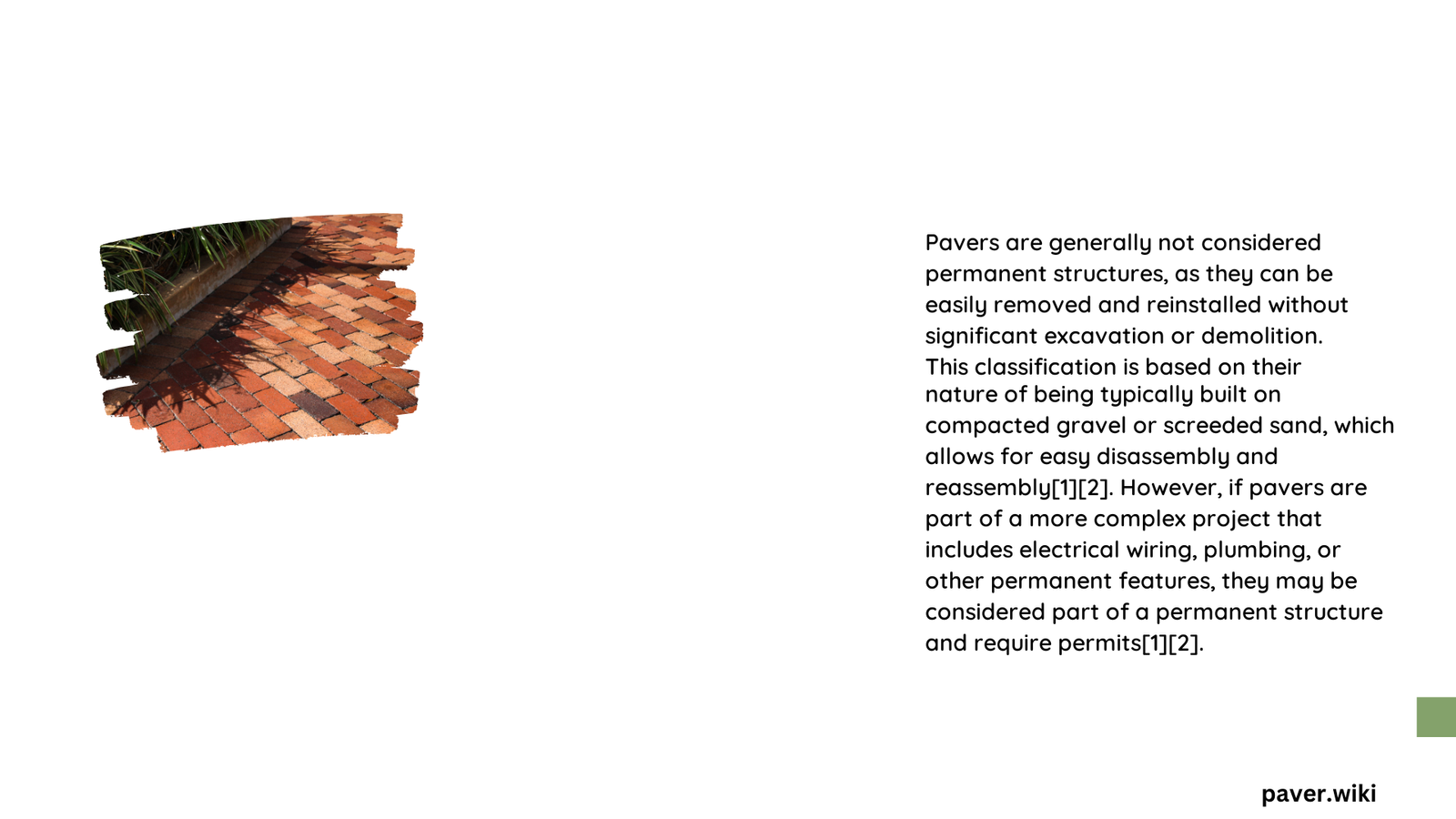Pavers represent a complex structural element with nuanced permanence, bridging the gap between temporary and permanent installations. Their classification depends on multiple factors including material composition, installation methodology, jurisdictional regulations, and intended usage. Legal and engineering standards provide critical insights into determining whether pavers qualify as permanent structures, with considerations ranging from load-bearing capacities to long-term durability and maintenance requirements.
What Defines Pavers as Permanent Structures?
Legal Classification of Pavers
Pavers are typically considered permanent structures when they meet specific criteria:
- Durability: Minimum 20-30 year expected lifespan
- Structural Integrity: Load-bearing capacity exceeding 10,000 pounds per square foot
- Installation Standards: Compliance with provincial/municipal engineering specifications
Jurisdictional Perspectives
| Jurisdiction | Permanent Structure Criteria | Key Requirements |
|---|---|---|
| Toronto, ON | Strict installation standards | Color contrast, snowplow resistance |
| Ontario Provincial | OPSS.PROV 355 Compliance | Granular subbase, edge restraints |
Technical Characteristics of Permanent Pavers
Compressive Strength Evaluation
Concrete pavers demonstrate remarkable structural permanence through:
- High Compressive Strength: 8,000 to 12,000 psi
- Freeze-Thaw Resistance: Meeting CSA-A231.2 standards
- UV Durability: Sustained performance under environmental stress
Installation Factors Determining Permanence
Critical Components for Structural Stability
- Subgrade Preparation: Comprehensive ground conditioning
- Edge Restraint Systems: Preventing lateral movement
- Material Quality: High-grade concrete or stone compositions
- Professional Installation: Adherence to engineering specifications
Cost Implications of Permanent Paver Structures
Average Installation Expenses
- Concrete Pavers: $10 – $30 per square foot
- Brick Pavers: $15 – $40 per square foot
- Stone Pavers: $20 – $50 per square foot
Maintenance and Longevity Considerations
Factors Influencing Structural Permanence
- Regular joint sand replenishment
- Prompt repair of damaged sections
- Professional periodic assessment
- Adherence to manufacturer’s maintenance guidelines
Warranty and Performance Expectations
Manufacturers typically offer:
– 20-30 year structural warranties
– Performance guarantees against material defects
– Replacement provisions for manufacturing inconsistencies
Conclusion

Pavers are considered permanent structures when they satisfy comprehensive legal, technical, and performance standards. Their classification depends on precise installation, material quality, and ongoing maintenance.
